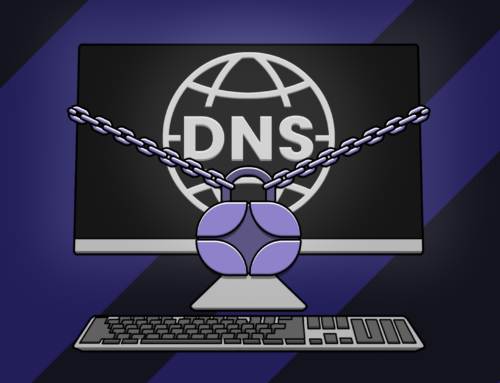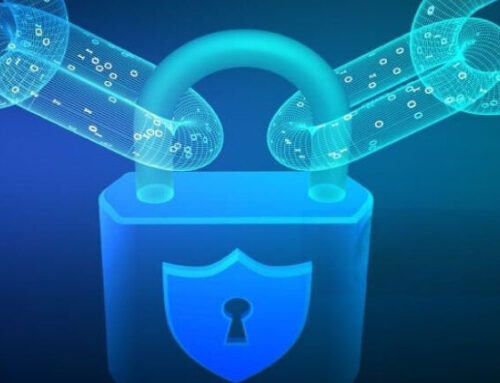
How Cybersecurity for Small Businesses: Tips to Prevent From Cyber Attacks
In today’s digital age, small businesses face an increasing array of cyber threats that can jeopardize their operations and reputation. Cybersecurity is no longer a luxury but a necessity for businesses of all sizes to protect against cyberattacks. to protect sensitive data and maintain trust with customers. As cybercriminals become more sophisticated, it is essential for small business owners to implement robust security measures to safeguard their enterprises. This guide aims to provide valuable insights and practical tips on how to fortify your business against potential cyber attacks.
Understanding Cybersecurity for Small Businesses
What is Cybersecurity?
Cybersecurity refers to the practice of protecting systems, networks, and programs from digital attacks. These cyber threats aim to access, change, or destroy sensitive information, extort money from users, or interrupt normal business operations. A strong cybersecurity strategy involves several key components to ensure the safety of your data:
- Implementing security software
- Utilizing firewalls
- Applying encryption
Ensuring your business data remains secure from unauthorized access is essential.
Importance of Cybersecurity for Small Businesses
For small businesses, cybersecurity is crucial as they are often more vulnerable to cyber attacks due to limited resources. Small business owners must recognize the paramount importance of protecting their data and infrastructure. Teamwin Global Technologica stands ready to empower businesses with secure and scalable IT solutions, helping to safeguard enterprise data and intellectual property. With unwavering support available 24/7, businesses can ensure reliable IT operations.
Common Cybersecurity Threats
Small businesses face a variety of cybersecurity threats, including phishing, ransomware, and malware attacks. Cybercriminals often target these businesses due to perceived vulnerabilities, aiming to gain access to sensitive information. To mitigate risks and protect their assets, businesses should:
- Stay informed of the latest cyber threats.
- Implement best practices like using strong passwords and up-to-date antivirus software.
Sources of Cyber Attacks
Types of Cyber Attacks
Cyber attacks come in many forms, each posing unique challenges for small businesses. Common types include ransomware attacks, which encrypt data until a ransom is paid, and phishing schemes designed to trick users into revealing sensitive information. Understanding these threats is essential for developing effective cybersecurity strategies.
How Cyber Attacks Target Small Businesses
Cybercriminals often target small businesses due to their perceived lack of security measures. They exploit weaknesses to gain access to valuable data. Here are some common vulnerabilities that can be exploited by cyber criminals:
- Outdated systems
- Weak passwords
- Unprotected networks
By implementing multi-factor authentication and maintaining a private network, businesses can add layers of security to mitigate these risks.
Case Studies of Cyber Attacks on Small Businesses
Real-world examples highlight the devastating impact of cyber attacks on small businesses. Case studies reveal how breaches can lead to significant financial loss, damaged reputations, and compromised customer trust. Learning from these incidents can help small businesses bolster their defenses and avoid similar pitfalls, emphasizing the need for proactive cybersecurity measures.
Ransomware and Malware Threats
Understanding Ransomware
Ransomware is a form of malicious software that encrypts a victim’s data, holding it hostage until a ransom is paid. It poses a significant threat to small businesses, which often lack the resources to recover quickly from such attacks. Understanding the mechanisms of ransomware, including how cybercriminals gain access to systems and the methods they use to extort money, is crucial. Implementing comprehensive cybersecurity measures, such as regular data backups and employee training on recognizing phishing attempts, can help protect your business from these malicious attacks.
Preventing Malware Infections
Preventing malware infections is essential for maintaining the integrity of your small business’s IT infrastructure. Malware can infiltrate a system through various means, such as email attachments, malicious websites, or software downloads. Employing antivirus solutions and keeping all systems up-to-date with the latest security patches are vital steps in safeguarding your enterprise. Additionally, using firewalls and strong password policies can create a robust defense against cyberattacks and unauthorized access. Educating employees about the dangers of malware and enforcing best security practices can further enhance your company’s cybersecurity posture.
Identifying Ransomware Attacks
Identifying ransomware attacks early can significantly reduce their impact on your business. Signs of a ransomware attack include unusual system behavior, unexpected encryption of files, and demands for payment. Small business owners should ensure that their employees are trained to recognize these indicators and report them immediately. Implementing multi-factor authentication and maintaining regular system audits Implementing cybersecurity resources can help detect and prevent these threats effectively. By staying vigilant and proactive, you can protect your company from the devastating effects of ransomware.
Security Strategies to Protect Your Small Business
Implementing Antivirus Solutions
Implementing robust antivirus solutions is a cornerstone of protecting your small business against cyber threats. Teamwin Global Technologica provides cutting-edge endpoint security solutions, such as SentinelOne and Crowdstrike, to secure your enterprise’s digital assets. These solutions offer comprehensive protection by detecting and neutralizing threats before they can cause harm. Regular updates and vigilant monitoring ensure that your business remains resilient against evolving cyber threats. By investing in top-tier antivirus software, you are taking a proactive step to safeguard your business from cyber attacks.
Best Practices for Cybersecurity
Adopting best practices for cybersecurity is essential for minimizing vulnerabilities and securing sensitive information. Teamwin Global Technologica recommends using their Endpoint Privilege Tool, AdminbyRequest, to manage user privileges and protect critical data. Managed IT Services are also available to maintain a secure and efficient infrastructure, providing IT network management and continuous support. To further fortify your defenses, they offer IT Security & Firewalls equipped with state-of-the-art technologies. With expert network security assessments and proactive threat management, you can anticipate and mitigate potential risks. Their cloud security services ensure compliance and safeguard your cloud environments, offering comprehensive protection tailored to your business needs.
Creating a Security Awareness Culture
Creating a security awareness culture within your organization is vital for protecting your business from cyber attacks. Educating employees on the importance of cybersecurity and training them to recognize potential threats empowers them to act as the first line of defense. Encourage the adoption of strong passwords and secure practices in daily operations. Regular workshops and updates on the latest cyber threats can keep your team informed and vigilant. By fostering a culture that prioritizes cybersecurity, you enhance your company’s resilience against cyber criminals and ensure a safer digital environment for your business operations.
Tips for Small Business Owners
How to Protect Your Business from Cyber Attacks
To protect your business from cyber attacks, it is crucial to adopt a comprehensive cybersecurity strategy. Teamwin Global Technologica offers solutions such as advanced firewalls, endpoint security, and privileged access management to shield your enterprise from cyber threats. Their real-time Dark Web monitoring and AI-driven technologies provide a robust defense, ensuring your business remains secure. By leveraging these sophisticated cybersecurity resources, small business owners can safeguard sensitive information and maintain operational integrity against unauthorized access and cybercriminal activities.
Keeping Software Up-to-Date
Keeping software up-to-date is a fundamental step in protecting your business from cyber threats. Regular updates ensure that your security software can effectively counteract the latest cyber attacks. By installing patches and upgrading systems promptly, you close vulnerabilities that cybercriminals might exploit. Teamwin Global Technologica emphasizes the importance of staying current with software updates as a layer of security that helps prevent data breaches and ensures your IT infrastructure remains resilient against evolving threats.
Recognizing Phishing Attempts
Recognizing phishing attempts is vital to protect your company from cyber attacks. Phishing schemes often masquerade as legitimate communications to deceive users into revealing sensitive data. Training employees to identify suspicious emails, verify sender authenticity, and avoid clicking on unknown links can significantly reduce the risk of a breach. Teamwin Global Technologica provides awareness programs that equip your team with the knowledge to recognize and report phishing threats, thereby safeguarding your business from unauthorized access and potential data loss.
Why Cybersecurity is Essential for Small Businesses
Consequences of Poor Cybersecurity
Poor cybersecurity can lead to severe consequences for small businesses, including data breaches, financial losses, and damaged reputations. Enterprises face challenges like managing complex security landscapes and ensuring compliance with regulations like GDPR. The impact of a cyber attack can disrupt business operations, resulting in loss of customer trust. By understanding these risks, small business owners can prioritize cybersecurity measures that protect their assets and ensure long-term success, leveraging Teamwin Global Technologica’s expertise to fortify their defenses.
Benefits of a Cyber Secure Business
Investing in robust cybersecurity offers significant benefits, such as protecting sensitive data, ensuring business continuity, and building customer trust. Teamwin Global Technologica’s solutions provide comprehensive security, enabling businesses to operate with confidence. Their managed support services ensure your IT infrastructure remains secure, efficient, and compliant. By prioritizing cybersecurity, businesses can focus on growth and innovation, knowing their assets are protected against potential threats, thus enhancing their market reputation and customer loyalty in the process.
Building Trust with Customers
Building trust with customers is essential for any small business, and cybersecurity plays a critical role in this process. By implementing strong security practices, you demonstrate a commitment to protecting customer data, which fosters confidence and loyalty. Teamwin Global Technologica’s security solutions help businesses establish a secure environment that reassures customers their information is safe. This trust translates into long-term relationships, increased customer satisfaction, and a competitive edge in the marketplace for businesses of all sizes. in the marketplace. Ensuring robust cybersecurity is a testament to your dedication to customer protection and service excellence.
Table: Cybersecurity Best Practices
Overview of Best Practices
Cybersecurity best practices encompass a range of strategies designed to protect business data and infrastructure. Key practices include using strong passwords, implementing multi-factor authentication, and maintaining up-to-date antivirus software. Regular employee training and security audits also play a crucial role. Teamwin Global Technologica provides comprehensive guidance and solutions to help small businesses adopt these practices effectively, ensuring their IT environments remain secure against the ever-evolving landscape of cyber threats.
Comparison of Different Security Measures
Different security measures offer varying levels of protection for small businesses. Firewalls and antivirus solutions provide frontline defense against unauthorized access and malware. Advanced technologies like AI-driven threat detection and real-time monitoring offer enhanced protection by identifying and mitigating risks proactively. Teamwin Global Technologica’s suite of security solutions allows businesses to select and implement the measures that best fit their needs, balancing cost, and security to ensure optimal protection against cyber risks.
Steps to Implement Security Strategies
Implementing effective security strategies involves a structured approach. Begin by assessing your current cybersecurity posture and identifying vulnerabilities. Develop a comprehensive plan that includes upgrading security software, training employees, and establishing incident response protocols. Teamwin Global Technologica offers expert assistance in crafting and implementing these strategies, providing tailored solutions that align with your business objectives. By taking decisive action, small business owners can fortify their defenses and ensure a secure, resilient IT environment.
5 Surprising Facts About How to Prevent Small Businesses from Cyber Attacks
- Over 60% of small businesses that experience a cyber attack close within six months.
- Phishing attacks account for more than 90% of successful data breaches, highlighting the importance of employee training.
- Only 14% of small businesses believe they are vulnerable to cyber attacks, despite the rising number of incidents.
- Implementing multi-factor authentication can prevent up to 99.9% of account compromise attacks.
- Regular software updates and patch management can reduce vulnerabilities by up to 80% and is often overlooked by small businesses.
What are the basic security practices and policies small businesses should implement to prevent cyberattacks?
Small businesses should establish basic security practices and policies that include regularly updating software, using strong passwords, and implementing multi-factor authentication. Additionally, training employees on recognizing phishing attempts and social engineering tactics can significantly reduce the risk of cyber incidents.
How can small businesses protect customer information from cyber crime?
To protect customer information, small businesses should adopt advanced security measures such as encrypting sensitive data, using secure websites for transactions, and regularly monitoring access logs. It’s crucial to handle and protect customer information diligently to prevent unauthorized access and potential data breaches.
What role does a cybersecurity company play in keeping your business safe from cyberattacks?
A cybersecurity company can provide essential services such as risk assessments, threat detection, and incident response planning. They help small businesses create security protocols tailored to their needs, ensuring that they are equipped to handle potential cyber threats effectively.
How can small businesses establish a secure Wi-Fi network to avoid cyber security risks?
To establish a secure Wi-Fi network, small businesses should change the default service set identifier (SSID) to something unique, use strong encryption protocols like WPA3, and regularly update the router’s firmware. Broadcasting the network name should be disabled to prevent unauthorized access.
What additional security measures can small businesses take to prevent access to their corporate network?
Small businesses can enhance security by installing security apps that monitor network traffic, implementing virtual private networks (VPNs) for remote access, and segmenting the corporate network to limit access to sensitive areas. These measures create an extra layer of security against potential cyber threats.
How can businesses to stay informed about the latest cyber security challenges?
Businesses can stay informed about the latest cyber security challenges by subscribing to industry newsletters, attending webinars, and participating in local small business administration workshops. Engaging with cybersecurity communities can also provide insights into emerging threats and best practices.
Why is it important for small businesses to describe how to handle and protect customer information?
Describing how to handle and protect customer information is vital for small businesses to build trust with their clients. Clear policies ensure that employees understand the importance of safeguarding sensitive data and are aware of the procedures in place to prevent cyberattacks and data breaches.
What common cyber security threats should small businesses be aware of?
Common cyber security threats that small businesses should be aware of include phishing attacks, ransomware, malware infections, and insider threats. Understanding these risks is the first step in developing effective strategies to mitigate them and ensure the safety of company data.
How can training employees on cyber security prevent cyberattacks?
Training employees on cyber security can significantly reduce the risk of cyberattacks by equipping them with the knowledge to recognize and respond to potential threats. Employees who understand the importance of security protocols and how to spot social engineering attempts are less likely to fall victim to cyber crime.





